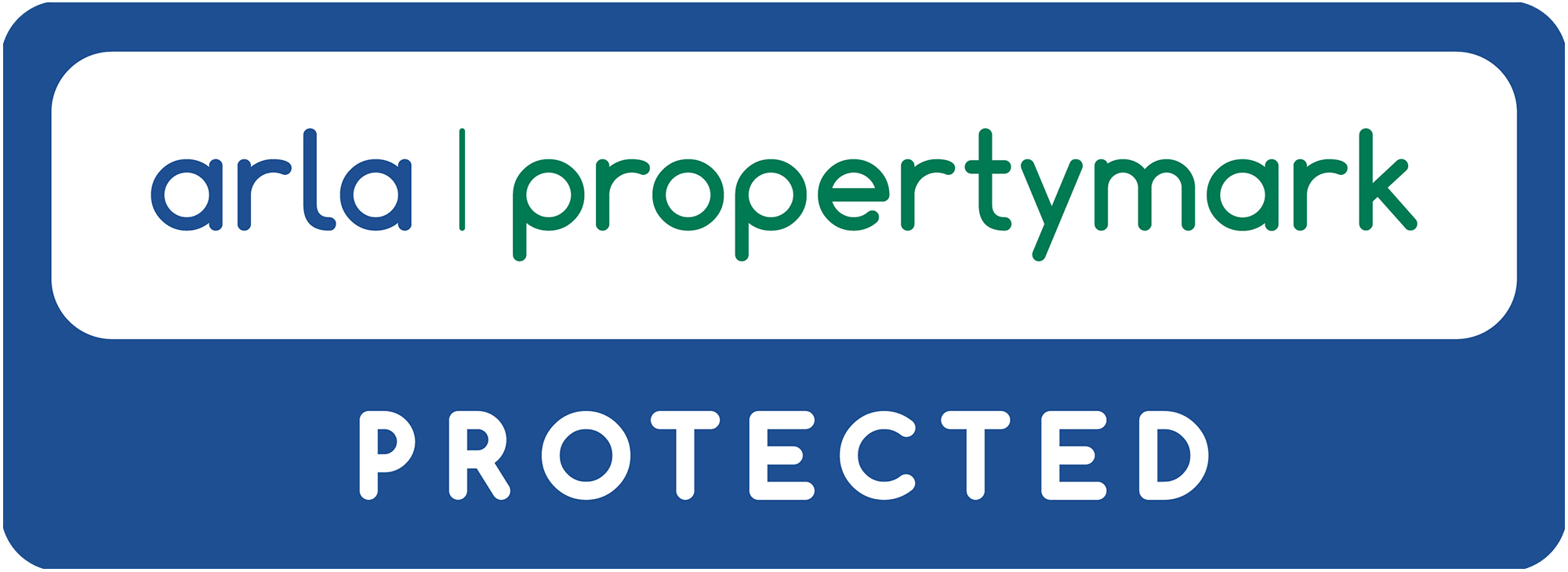
GUIDE TO LETTING
The combined professional teams at Carters Lettings and Carters Chartered Surveyors, with all their knowledge, expertise and experience, are available to help you navigate through the minefield of processes and legal formalities involved with letting a property.
We have put together the following as a quick reference guide, which we hope you find both useful and informative. Should you require advice on an item that is not covered here, please do not hesitate to contact us.
We strongly suggest you also familiarise yourself with the Government website section relevant to landlords – Renting out your property: Landlord responsibilities – GOV.UK
LANDLORDS RESPONSIBILITY
As a landlord you must…
Keep the property in good condition, safe and free from health hazards
Provide all relevant safety certificates to include EPC, EICR and gas safety
Protect your tenants deposit in a government-approved scheme
Check your tenant has the right to rent your property if it’s in England
Review rent in line with current government guidelines
Give your tenant a copy of the How to rent checklist when they start renting from you (you can email it to them)
Follow the legal guidelines when settling disputes. You can often sort out disputes with your tenants without going to court.
Pay Tax and or National Insurance. Make sure you know what you need to pay and by when
More details regarding these points are available on Renting out your property: Landlord responsibilities – GOV.UK
There are different rules for landlords in Scotland and landlords in Northern Ireland.
A few bits of useful information…
MORTGAGE
If your property is mortgaged, you should obtain your mortgagee’s written consent to the letting. They may require additional clauses in the tenancy agreement.
LEASEHOLD
If you are a leaseholder, you should check the terms of your lease, and obtain any necessary written consent before letting.
INSURANCE
You should ensure that you are suitably covered for letting under both your buildings and contents insurance. Failure to inform your insurers may invalidate your policies. We can advise on Landlords Legal Protection, Rent Guarantee Cover and Landlords Contents and Buildings Insurance if required.
UTILITIES AND COUNCIL TAX
If you have appointed Carters to manage your property for you, we will arrange for the transfer of Council Tax and utility accounts to the Tenant. Meter readings will be taken, allowing your closing gas and electricity accounts to be drawn up.
TAX
When resident in the UK, it is entirely the Landlord’s responsibility to inform the Revenue & Customs of rental income received, and to pay any tax due.
Where the Landlord is resident outside the UK for more than 6 months, they will require an exemption certificate from the Revenue & Customs. They cannot receive rental balances without deduction of tax before we have this. We can provide advice and assistance on applying for such exemption.
RIGHT TO RENT SCHEME
Right to Rent, which also applies to people who are subletting their property or taking in lodgers, was introduced in the Immigration Act 2014. You must check that a tenant or lodger can legally rent your residential property in England. Landlords who fail to carry out checks risk a potential penalty of up to £3,000 per tenant.
INVENTORY
It is most important that an inventory of contents and schedule of condition be prepared, in order to avoid misunderstanding or dispute at the end of a tenancy. Without such safeguards, it will be impossible for the Landlord to prove any loss, damage, or significant deterioration of the property or contents. In order to provide a complete service, we can if required arrange for an inventory and schedule of condition to be completed, the cost will depend on the size of the property.
TENANCY DEPOSIT SCHEME
Since 6 April 2007, all deposits taken by landlords and letting agents under Assured Shorthold Tenancies (ASTs) in England and Wales must be protected by a tenancy deposit protection scheme. Landlords and letting agents must not take a deposit unless it is dealt with under a tenancy deposit scheme. To avoid any disputes going to court, each scheme is supported by an alternative dispute resolution service (ADR). Landlords and letting agents can choose between two types of scheme; a single custodial scheme and two insurance-based schemes. Learn more here: http://www.direct.gov.uk/en/TenancyDeposit
Carters lettings and Property Management are registered members of the Tenancy Deposit Scheme and the PRS.
HOUSING ACT 1988
You might have noticed the Housing Act 1988 when you received your tenancy agreement. It’s usually mentioned in the documents you’ll have read through and signed and sets out the rights, remedies and rules concerning letting residential property, which is why you see it mentioned in the tenancy agreement documents. It is different to the tenancy agreement which sets out the specific details of your agreement with your landlord, such as how much rent you will pay and how long your tenancy will run.
LANDLORD AND TENANT ACT 1985
Most tenancy agreements are Assured Shorthold Tenancies (ASTs). These are covered by the Landlord and Tenant Act 1985 and landlords are responsible for the legal requirements in this act. As a tenant you are obliged to report repairs – preferably in writing. If you don’t, your landlord has no legal obligation to carry them out.
HEALTH AND SAFETY
AND OTHER LEGAL REQUIREMENTS
The following requirements are the responsibility of the owner (Landlord). Where you have signed our Full Management Agency Agreement, they are also our responsibility and we will need to ensure full compliance.
ANNUAL GAS SAFETY CHECK
Under the Gas Safety (Installation and Use) Regulations 1998 all gas appliances and flues in rented accommodation must be checked for safety within 12 months of being installed, and thereafter at least every 12 months by a competent engineer. Full records must be kept for at least 2 years of the inspections of each appliance and flue, of any defects found and of any remedial action taken. A copy of the safety certificate issued by the engineer must be provided prior to the tenancy commencing and also every time it is carried out.
THE ELECTRICAL SAFETY STANDARDS
The Electrical Safety Standards in the Private Rented Sector (England) Regulations 2020 came into force on 1 June 2020 and apply to all tenancies created on or after that date in England from 1 July 2020. These new regulations require landlords to have an EICR completed at least every 5 years and tested by a person who is qualified and competent. Landlords will also have to provide a copy of the electrical safety report to their tenants as well as to the local authority if requested.
FIRE SAFETY
Private sector landlords are required to have at least one smoke alarm installed on every storey of their properties and a carbon monoxide alarm as a requirement by a gas boiler as well as other gas appliances (eg a coal fire, wood burning stove). The landlord must make sure the alarms are in working order at the start of each new tenancy. They must also follow and ensure the tenant is aware of, fire and safety regulations for the property if in a purpose-built block of flats and for property adapted into flats
MULTIPLE TENANTS
If your property is on 3 or more levels and let to 5 or more tenants comprising 2 or more households (i.e. not all of the same family) it may be subject to mandatory licensing by your local authority. Whether mandatory licensing as above applies or not, if there are 3 or more tenants not all related in any property, it is still likely to be an HMO, and special Management rules apply.
We can advise you further regarding this or contact your local authority for details. Learn more here: https://www.gov.uk/government/publications/selective-licensing-in-the-private-rented-sector-a-guide-for-local-authorities/selective-licensing-in-the-private-rented-sector-a-guide-for-local-authorities
The HHSRS is enforced by local authorities. For further information:
https://www.gov.uk/government/publications/housing-health-and-safety-rating-system-guidance-for-landlords-and-property-related-professionals
HEALTH AND SAFETY INSPECTIONS
The Housing Health and Safety Rating System (HHSRS) provides an analysis of how hazardous a property is through assessment of 29 potential hazards found in housing. Landlords have to maintain their properties to provide a safe and healthy environment. The HHSRS is enforced by local authorities. For further information visit www.communities.gov.uk/hhsrs
ENERGY PERFORMANCE CERTIFICATE'S
Energy Performance Certificate’s must now be provided by law to prospective tenants of a property. A new certificate will not be required on each let since, in the case of rental property, EPCs will be valid for 10 years. We have a database of registered energy assessors, and we will be pleased to arrange an EPC inspection and assessment on your property upon request. Please note that we cannot market your property to let until we have in our possession a valid EPC for the property. To find the EPC for a property: Find an energy certificate – GOV.UK . All properties rented out in the private rented sector normally need to have a minimum energy performance rating of E. It is unlawful to rent a property which breaches the requirement for a minimum E rating, unless there is an applicable exemption. A civil penalty of up to £4,000 will be imposed for breaches.
FINDING A SUITABLE TENANT FOR YOUR PROPERTY
When choosing a tenant, you should consider things like:
CREDIT SCORE
A good credit score indicates financial responsibility, which can lead to on-time rent payments.
EMPLOYMENT HISTORY
A consistent employment history is a good sign.
INCOME
A tenants annual income should be roughly 30 x the monthly rent.
REFERENCES
Positive references from landlords and employers are a good sign.
INSTINCTS
Your first impressions are often correct, so follow your instincts.
LETTING AGENT
Choose a professional and trustworthy letting agent who understands your needs.
BACKGROUND CHECKS
Conduct thorough background checks on tenants
TENANT REFERENCES
Ask questions about the tenant’s previous tenancy, such as how long it was, why they left, and whether you’d rent to them again. Screening tenants can help you build a working relationship with them, reduce the possibility of disputes, and increase the chances of a long-term, hassle-free rental.
To learn more about the full range of services Carters can offer
HEAD OFFICE ADDRESS
Carters Lettings
4 Albany Road
Harborne, Birmingham
B17 9JX
0121 803 4708
lettings@carterssurveyors.co.uk
OPENING TIMES
MON-FRI 9AM - 5PM
SAT - Available by appointment
Please leave a message out of these hours and we will endeavour to get back to you as soon as we can.
WHAT3WORDS
dozen.yards.jams








